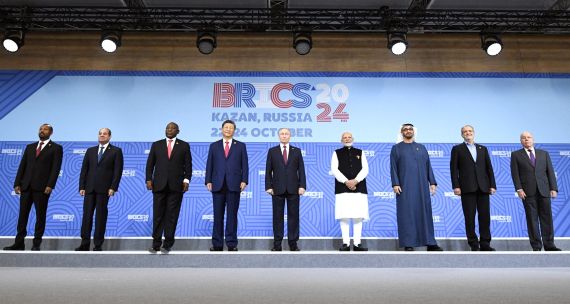China’s policies on soil and solid waste are coming relatively late compared with those on air and water. Recognizing the severity of problems with soil and the urgency for soil protection, the Chinese government published a series of polices in recent years targeting the prevention and treatment of soil pollution. There is also greater emphasis on enforcement.
- Compared with air- and water-related policies, soil- and solid-waste-related policies are relatively new, with most being introduced in recent years. The Soil Pollution Prevention and Control Action came out in 2016, later than that for air pollution (2013) and water pollution (2015). It doesn’t mean soil pollution in China is not severe; rather, it is just not as visible or directly felt as air and water pollution. One can expect more policies on soil and solid waste in the coming years.
- Over the years, the policies shifted from after-pollution treatment to a more comprehensive approach that reduces pollution sources while promoting the recycling of waste and converting it to resources, safe waste disposal, risk management, and community participation. The Work Plan for the Pilot Setup of Zero Waste Cities is a good example of this comprehensive approach. Foreign garbage is banned as one measure of reducing the sources of pollution, as seen in the Implementation Plan for Prohibiting the Entry of Foreign Garbage and Advancing the Reform of the Solid Waste Import Administration System.
- Recent policies set specific targets for the prevention and treatment of soil pollution at each phase, as well as specific tasks for different sectors in dealing with solid waste. The Soil Pollution Prevention and Control Action Plan set respective tasks for 2020, 2030, and 2050. The Work Plan for the Pilot Setup of Zero Waste Cities and the Soil Pollution Prevention and Control Law specify that industries like mining, chemical engineering, and refining are key in reducing solid waste production and recycling, and wastes produced from farms, livestock, and poultry should be fully utilized.
- The policies put a lot of emphasis on enforcement and implementation. Both the Soil Pollution Prevention and Control Action and the Soil Pollution Prevention and Control Law explicitly state that local governments should include prevention and treatment of soil pollution in their agenda, and local officials are held responsible for fulfilling the tasks and as one of their key performance indicators. Any stakeholders such as manufacturing plants and companies producing solid waste should take measures to counter pollution, and any violation of these measures will be subject to fine or penalty. The Work Plan for the Pilot Setup of Zero Waste Cities uses environmental credits, tax preferences and exemptions, financial support, and subsidies to incentivize enterprises and stakeholders to effectively implement the policy.
Read other briefs in this Eco-City Tracker Series:
Introduction: A Brief Summary of China’s General Environmental Protection Policies
Air Quality: A Brief Summary of China’s Air Protection Policies
Water Quality: A Brief Summary of China’s Water Protection Policies
For more information, see a list of recent national-level policies on soil pollution and solid waste management:
- Work Plan for the Pilot Setup of Zero Waste Cities, 无废城市建设试点工作方案, http://www.gov.cn/zhengce/content/2019-01/21/content_5359620.htm
- Soil Pollution Prevention and Control Law, 土壤污染防治法, http://www.npc.gov.cn/npc/xinwen/2018-08/31/content_2060158.htm
- Interim Measures for the Evaluation and Management of the Comprehensive Utilization of Industrial Solid Waste Resources, 工业固体废物资源综合利用评价管理暂行办法, http://www.miit.gov.cn/newweb/n1146295/n1146592/n3917132/n4061768/c6191009/content.html
- Administrative Measures for the Soil Environment of Industrial and Mining Sites (for Trial Implementation), 工矿用地土壤环境管理办法(试行), http://www.mee.gov.cn/gkml/sthjbgw/sthjbl/201805/t20180510_438760.htm
- Measures for the Administration of the Soil Environment of Agricultural Land (for Trial Implementation), 农用地土壤环境管理办法(试行), http://www.mee.gov.cn/gkml/hbb/bl/201710/t20171009_423104.htm
- Implementation Plan for Prohibiting the Entry of Foreign Garbage and Advancing the Reform of the Solid Waste Import Administration System, 禁止洋垃圾入境推进固体废物进口管理制度改革实施方案, http://www.gov.cn/zhengce/content/2017-07/27/content_5213738.htm
- Administrative Measures for the Soil Environment of the Contaminated Land Parcel, 污染地块土壤环境管理办法, http://www.mee.gov.cn/hjzli/trwrfz/201701/t20170118_394953.shtml
- Law on the Prevention and Control of Environmental Pollution by Solid Waste (Revised Draft), 中华人民共和国固体废物污染环境防治法(修订草案), http://www.mee.gov.cn/gkml/sthjbgw/stbgth/201807/W020180717334464514045.pdf
- Soil Pollution Prevention and Control Action Plan, 土壤污染防治行动计划, http://www.gov.cn/zhengce/content/2016-05/31/content_5078377.htm
- Administrative Measures for the Comprehensive Utilization of Coal Ash (Revised in 2013), 粉煤灰综合利用管理办法, http://www.ndrc.gov.cn/zcfb/zcfbl/201301/t20130117_523221.html
Prepared by the Sustainable Asia Team at the Asia Pacific Foundation of Canada:
Iris Jin
Senior Program Manager
Maya Xiaoting Liu
Post Graduate Research Scholar
Henry Shum
Junior Research Scholar



